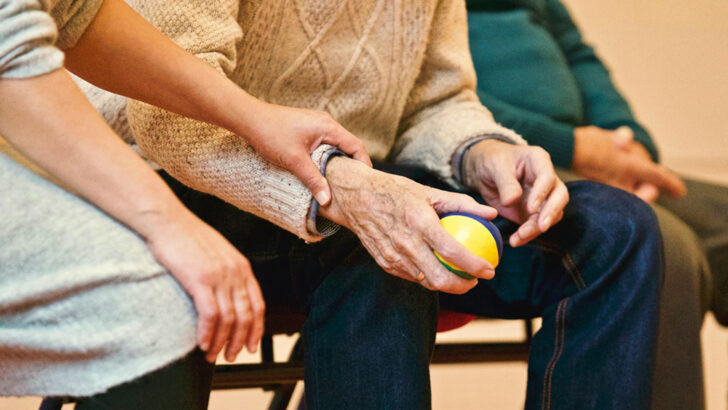Fundamental to our faith is our belief in the sanctity of human life, from conception to natural end, because all life comes from God. This eternal truth informs all we do.
In the secular world there is no belief in God, and, for many, little belief in the sanctity of human life. Those who have faith are told their beliefs and values should be a private matter. Those who do not have faith appear to consider their values of greater relevance than those of people of faith. It is difficult to understand this assertion.
There has been massive coverage of the vote on the Terminally Ill Adults (End of Life) Bill in parliament on November 29: the first time the UK Parliament has ever voted positively on an assisted suicide or euthanasia bill.
The state has accepted that people should have the autonomy to make a decision to die by suicide. However that is a very different situation from the state intervening to enable death. The arguments for assisted suicide and euthanasia focus on individual autonomy and the right to choose how, where and when one dies. However, the logic of this is that assisted suicide should be available for everyone without any restriction. The bill provides only for assisted suicide for those who are terminally ill with less than six months to live. Yet in all countries allowing such laws, they have been extended. People of all ages die this way: because of inability to access medical/ mental health services, loneliness, isolation, learning disabilities, autism and the fear of being a burden to others.
Options
Kim Leadbeater is reported to have said last month on radio that the current situation for terminally ill people is that “you can suffer and have a very difficult and painful death, you can go to Switzerland with dignity and the other option is you can take your own life”. This is not true. With good palliative care, pain can in so many cases be managed, if doctors are properly trained, yet palliative care training and provision is very limited.
The bill is full of uncertainties.
It provides that a terminally ill person who has capacity, is over 18, resident in England or Wales for at least 12 months, registered with a GP there, who has a “clear, settled, and informed wish to end their own life, who has made that decision voluntarily without any coercion or pressure, may be provided with assistance to end their own life”.
How is all this to be established? Prognoses about how long someone has to live are very often wrong. How is coercion or pressure to be detected? What is a clear, settled and informed wish? How long does it have to be settled for?
The bill provides that a person can tell a registered medical practitioner (doctor) that they want medical assistance to end their own life. Most hospital doctors and most GPs won’t really know the patient. Many may not have in-depth knowledge of the patient’s illness or their circumstances.
The doctor, if willing to do so, can “explain it” and talk to the patient about “their diagnosis and prognosis, any treatment and the likely effect of it and any available palliative, hospice or other care, including symptom management and psychological support”. Such support is often not available because we do not invest in it.
Doctors can raise the issue with a patient unasked, if they think it is “appropriate to do so”.
Conditions
What will this do to trust in the medical profession? Patients may feel they should die to free up beds; so that they are not a burden or a nuisance to others. They may think that since the doctor has suggested it, it may be the right thing to do. How will families and chaplains cope?
The bill requires three declarations – one from the patient, one from the doctor who will help the death, and one from an independent doctor. Then the patient can apply to the High Court for a declaration approving the request. If the judge is satisfied that all conditions are met, they must agree, if not the judge must refuse. There is a right of appeal to the Court of Appeal.
If the court agrees, the patient must make a second declaration after a cooling off period of 14 days (or 48 hours where death is imminent), that they still want to die. The declaration can be withdrawn at any stage.
The first doctor may then give the substance to the patient which the patient may self-administer. An independent person does not have to be present. “The doctor can assist the patient to ingest or otherwise self-administer the substance.”
The doctor does not have to stay in the room until the patient has taken the drug, but must remain on the premises until the patient is dead, or the procedure has failed. What if the patient does not die? What does the doctor do?
In Oregon complication rates have been up to 14.8%. Patients can have difficulty swallowing the medication, may suffer drug regurgitation or seizures, may regain consciousness or suffer prolonged vomiting. The longest time taken to die last year was 137 hours – over five days. Are doctors going to remain that long?
581,363 people died in England and Wales in 2023. It has been calculated that we would have up to almost 27,000 ‘assisted’ deaths each year in England and Wales.
There are 18 judges in the Family Division of the High Court who deal with all cases. There are massive backlogs. How could those judges cope with the anticipated 27,000 cases a year?
In a recent open letter, 2,038 doctors, 905 nurses, and 462 other healthcare workers (including medical directors at hospices and NHS trusts, and 53 eminent medical professors) warned that the “NHS is broken, with health and social care in disarray. Palliative care is woefully underfunded and many lack access to specialist provision”.
The thought of assisted suicide being introduced and managed safely at such a time is remarkably out of touch with the gravity of the current mental health crisis and pressures on staff.
The shift from preserving life to taking life is enormous and should not be minimised. The prohibition of killing is present in all societies due to the immeasurable worth and inherent dignity of every human life. The prohibition of killing is the safeguard. The current law is the protection for the vulnerable
This bill is dangerous. Many of those with disabilities are terrified of it. They know what has happened elsewhere and they fear that ultimately there will be an understanding that those with disabilities and vulnerabilities are superfluous and costly.
Belief in the sanctity of human life means that we must fight the bill. The state must protect and support our sick, our vulnerable, our lonely: not kill them.


 Nuala O’Loan
Nuala O’Loan
